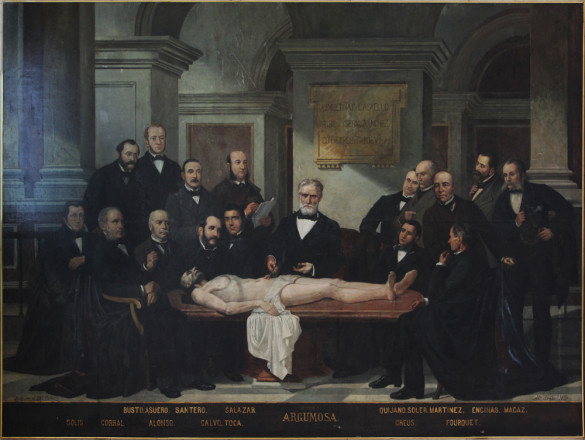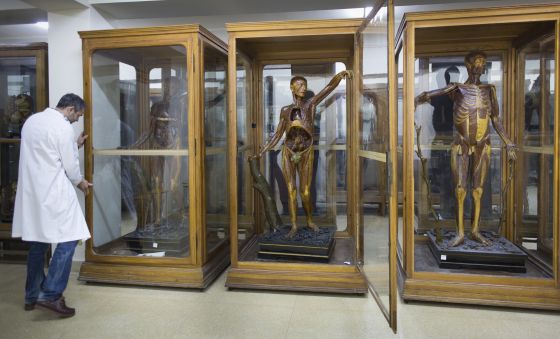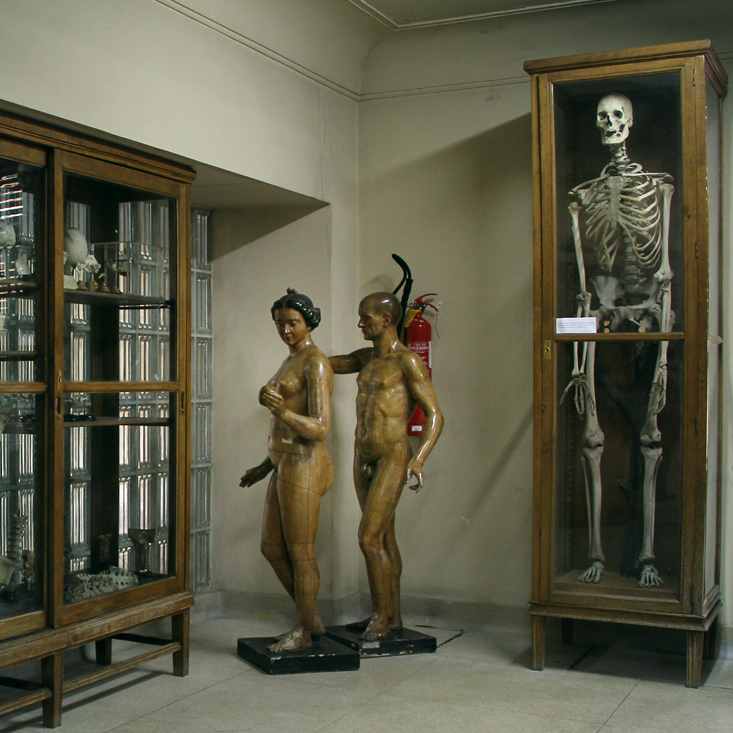
An incredible collection of anatomical models, mummified body parts, and human bones can be discovered in one of the world's oldest universities.
The Universidad Complutense of Madrid is one of the oldest universities in the world. Its story begins as far back as 1293 when the Archbishop of Toledo was granted a charter by King Sancho IV of Castile to found a “studium generale.” Two hundred years later, in 1499, Pope Alexander VI granted a papal bull, which expanded the Complutense into a full university.
Today, the best reason to visit the University is its Museum of Anatomy, “Javier Puerta,” created in 1787 by royal decree of King Charles III, who was known for his contributions to science and research.

Part of the college of medicine, the museum is made up of anatomical models, mummified and artificial body parts, and three sculpture collections. The wax polychrome sculpture collection displays a series of anatomically precise wax models, representing the stages of pregnancy from conception to childbirth, the oldest of which dates back to 1794. The plaster polychrome sculpture collection is essentially a collection of plaster sculptures of human body parts. The ominous-sounding bone collection is comprised of thousands of skulls and two skeletons.
One of these, which dates back to the Spanish War of Independence (1807-1814), is the skeleton of a French farmer and grenadier who, due to the mercury salts in his bones, is speculated to have been killed by mercury poisoning. The other is the skeleton of the so-called Extremeño Giant, said to have been brought to the museum alive by Pedro Gonzalez de Velasco, the museum’s director at the time.

To be sure that the museum is open at the time you'd like to visit, give them a call at +34 913 94 13 74, or request an appointment by email at fviejo@med.ucm.es.